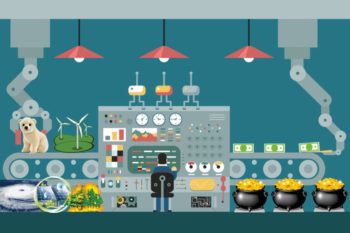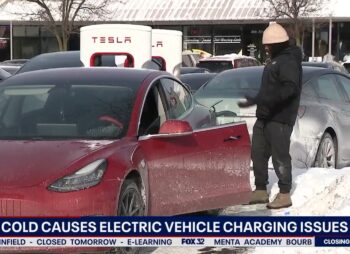
The mandate is the federal rule requiring every gallon of gasoline to contain a blend of at least 10% corn-based biofuels. Almost all presidential aspirants go to Iowa at this time of the political season and pay homage to Big Corn and the ethanol lobby.
Cruz has been an admirable outlier and thus is under constant assault from the lobby to get on board. The industry has even stalked him throughout the state while blitzing the Texas senator with a multimillion-dollar campaign to soften his opposition.
The industry now claims that the pressure worked and that Cruz says he’s in favor of “phasing out” the federal ethanol mandate by 2022. Ethanol lobbyist Eric Branstad, the governor’s son, put out a press release declaring that “while not perfect … we are encouraged by Sen. Cruz’s remarks.”
The Cruz campaign, however, denies any shift in their man’s position of being “opposed to ethanol subsidies.”
Either way, Cruz is still more courageous on this issue than most GOP presidential aspirants who travel to Des Moines and Cedar Rapids and ritualistically sing full-throated praises for the $6 billion ethanol industry. Hillary Clinton and Bernie Sanders are all-in for Big Corn.
Meanwhile, the industry not only wants permanent “E10” requirements, but is seeking an eventual expansion of the mandate to 15% ethanol in gas, or “E15.” There is even talk of E25.
We’re not against motorists putting corn in their gas tanks if they want to. But what other product has a federal requirement forcing consumers to buy their product? If biofuels are the consumer bargain that Big Corn says, why not let them choose it on their own? If it’s good for the environment and reduces carbon emissions, then certainly “green” voters will demand it.
The problem for ethanol producers now is that oil prices are so low at $35 a barrel — a third of where they were a year and a half ago — that ethanol isn’t economical.
The boom in shale oil and gas is doing far more to reduce U.S. reliance on foreign petroleum, and it’s likely that within five years the drilling bonanza will make the U.S. a net exporter of oil and gas, with or without ethanol. The Congressional Budget Office says meeting the ethanol target in 2017 could cost American consumers an extra 30 cents a gallon or more.
Most studies also show that the environmental benefits of biofuels have been exaggerated, and some even conclude that ethanol is, on net, ecologically unfriendly. Some 5 million acres that were supposed to be set aside for conservation have been turned into cornfields due to the federal incentives.
Even the carbon-reduction claims look to be a myth. A 2014 Department of Energy study concluded that “biofuels from crop residue can reduce soil carbon and increase CO2 emissions” by as much as 7%.
The ethanol mandate is supposed to be gone by 2022, but we’ve seen such hollow promises come and go not only with ethanol, but with subsidies of wind and solar as well. The time to end these mandates is now.
If the presidential primaries didn’t start in Iowa every four years, we suspect federal support for ethanol would have ended years ago. As it is, tens of billions of dollars have been transferred from the pockets of taxpayers to those of Hawkeye farmers — a high price to pay for letting Iowans vote first.
















